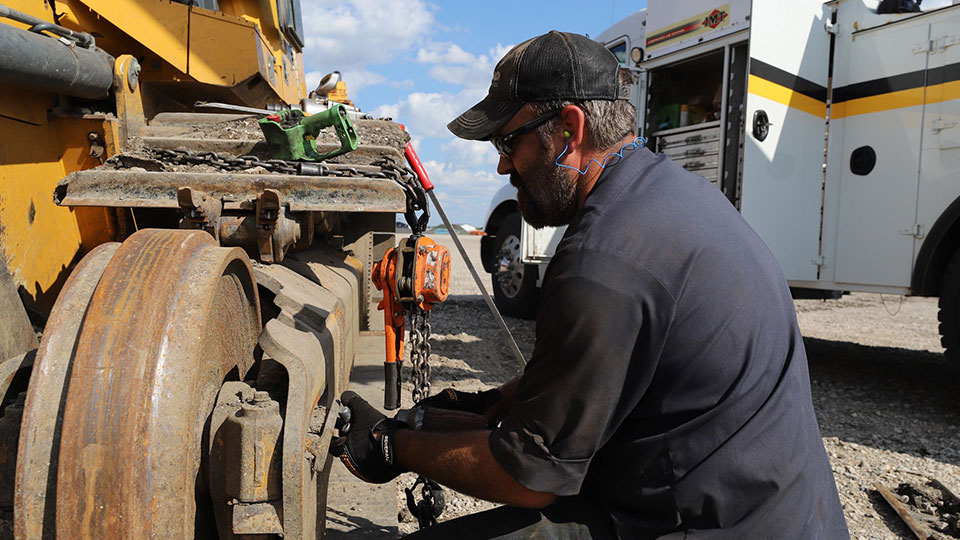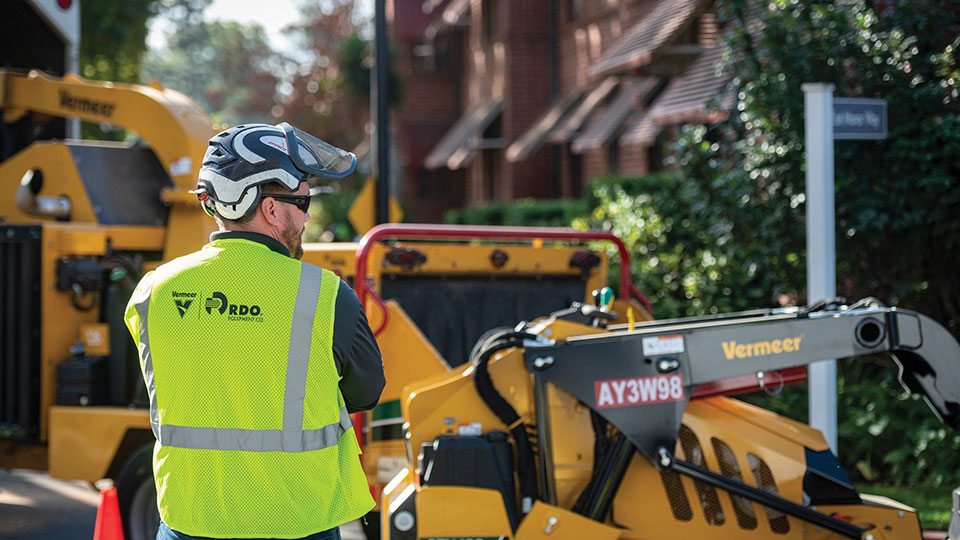
Becoming successful in any career takes a well-rounded skillset. This is true of accountants, this is true of salespeople and this is certainly true of field service technicians.
Being a field service technician is a great career, which is why many people strive to become one. There is a lot of income potential, and it’s easy to see the impact of your work (it’s right there in front of you when you finish fixing a machine).
That said, working as a field technician is also difficult — whether you’ve been at it for a while or are just getting started. After all, field technicians are usually alone without too much support. They’re rarely given any hands-on assistance. That’s why field service technicians need to have the right set of technical and soft skills to be successful.
Here at RDO Equipment Co., we employ field service technicians all over the U.S.
Over the years (nearly 60 at this point), many of these team members become very successful, growing within their careers and establishing the lives they want. You can do this too.
In this article, we’ll outline six of the most important skills for field service technicians — also sometimes called resident technicians, mobile technicians or mobile mechanics. We’ll also provide some tips for adding them to your toolbox . . . pun intended.
This is a big one. Although it’s not necessarily a “technical” job skill, being able to have clear conversations with a customer out in the field is important.
More often than not, field service technicians are the only representatives from their company at a work site.
That means it’s up to them to communicate with the customer (to discover what’s happened, outline the work that needs to be done and explain the plan of attack for fixing it). The people they’re speaking to (foremen, business owners, equipment operators, etc.) aren’t necessarily heavy equipment mechanics.
Field service technicians should be able to describe issues in layman's terms to ensure everyone is on the same page.
Working on equipment outside of the shop is a different animal entirely. When equipment breaks down on a job site or out in a field, it disrupts that entire operation.
As a result, the affected people (company owners and personnel) can be frustrated — and rightly so.
This can sometimes create a tense working environment for a field service tech — every minute, hour or day of downtime costs the customer money.
Working under this pressure, with frustrated people around, is an important skill to develop if you want to be a successful technician. Not only will this help you perform repairs efficiently and correctly in this environment, but it’s also a good way to develop rapport with your customers as you become a calming presence.

Another skill every successful field service technician has — at RDO and elsewhere — is the ability to write down the story, or timeline, of every job. A well-written work order can bring a lot of understanding and comfort to a customer.
The best field technicians will explain the cause of the issue (what they found), the correction(s) they performed, how much time it took and what the outcomes were.
All of this should be typed up in easily understandable language. Work orders are presented to customers and help to explain what work was done and, in some ways, justify the cost.
Sign Up: Service Technician Monthly Newsletter
Become a more profitable, successful mechanic with insights and resources sent to your inbox every month.
You never know what you’ll show up to as a technician on the way to a field service job. You could encounter any number of issues with a broken down machine.
That’s why you must understand the interworkings of the products you’re servicing. That means if your company — like RDO — specializes in servicing construction or agriculture equipment from a certain manufacturer, develop a comprehensive knowledge of them.
Ensure you understand all equipment systems (electrical, hydraulic, fuel, etc.) and can confidently explain how they work, their schematics and how you fix all of them. This knowledge will set you up for success as a field service technician.

Although this one seems kind of obvious, it can’t be overstated. Field service techs are often expected to “fix it where it lies.” As such, they must be able to perform all troubleshooting jobs and repairs independently. In some situations, they may not even have the right tool for the job — they can only rely on what they have in/on their service vehicles.
Developing these high-level skills takes time. Great field techs often spend three to five years in the shop before transitioning to the mobile realm.
Related: Field Diesel Mechanic vs. Shop Diesel Mechanic: Which Job is Right For You?
There are a lot of systems, programs and software used as a field service technician — regardless of what industry they work in. Every company (RDO included) has internal processes for documenting work and performing/recording safety inspections. All field technicians must know these systems inside and out.
Additionally, in this fast-paced field environment, knowing how to navigate and use product/service-support tools (like John Deere Service Advisor), which are required for many repairs, can help field service techs save time and perform their job.
You deserve to create a career you’re proud of, with a company that values your contributions and will invest in your development.
Verbal and written communication skills, the ability to work under pressure, an in-depth knowledge of the products you specialize in and strong mechanic abilities are all important to develop as you work toward becoming a successful field service technician.
Choosing the correct employer is also very important to your success.
Your next step is to read How to Choose a Company to Work For as a Diesel Mechanic n for some guidance on what a great employer looks like and how to choose one.

RDO Equipment Co. is a premier employer of field service technicians. Although we like to promote these team members from within, we’re always excited to add talented new technicians. If you’d like to learn more about these opportunities, check out this article for an in-depth look at A Day in the Life of a Field Service Technician.
Finally, review our open positions in your area for a list of our current field service openings.